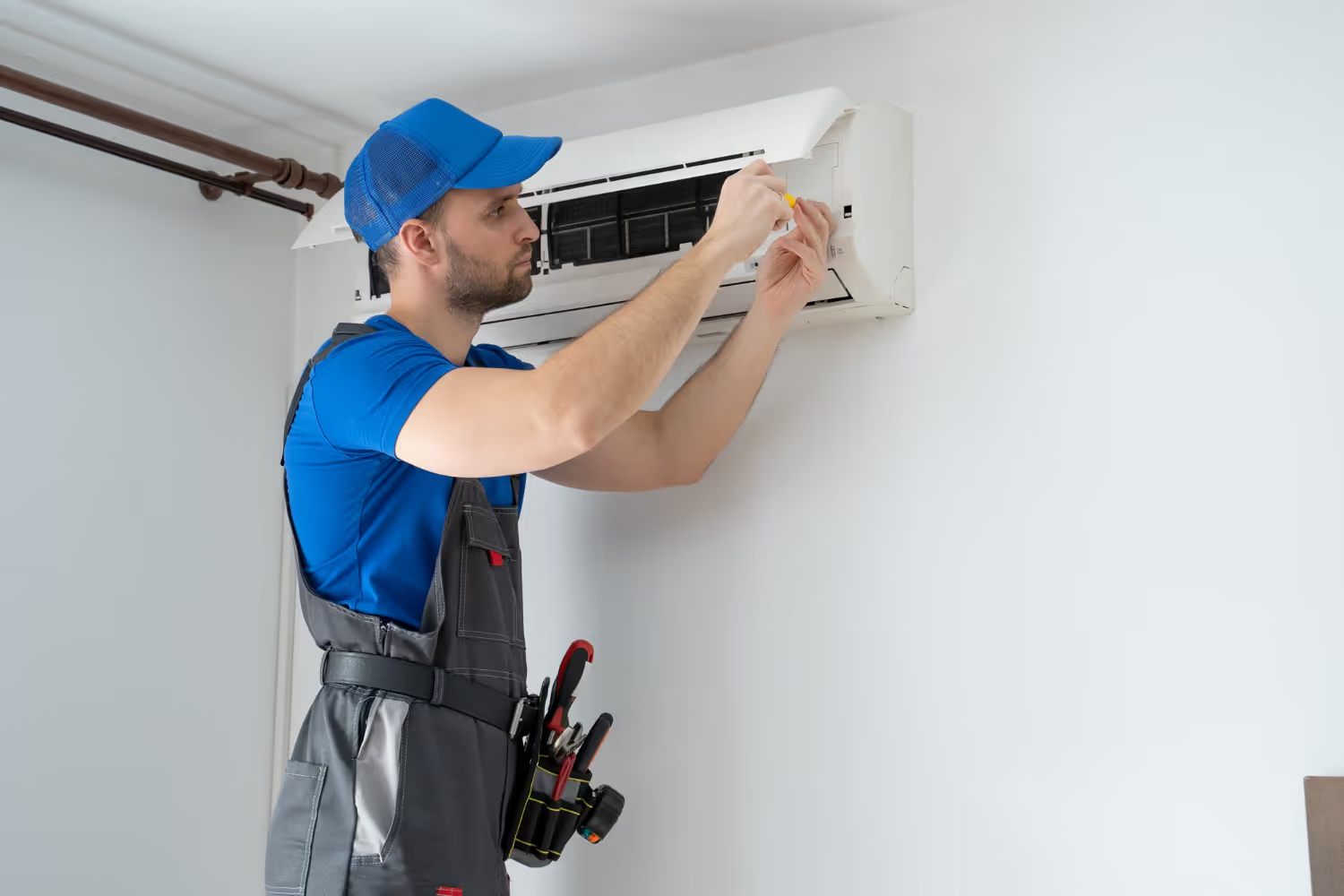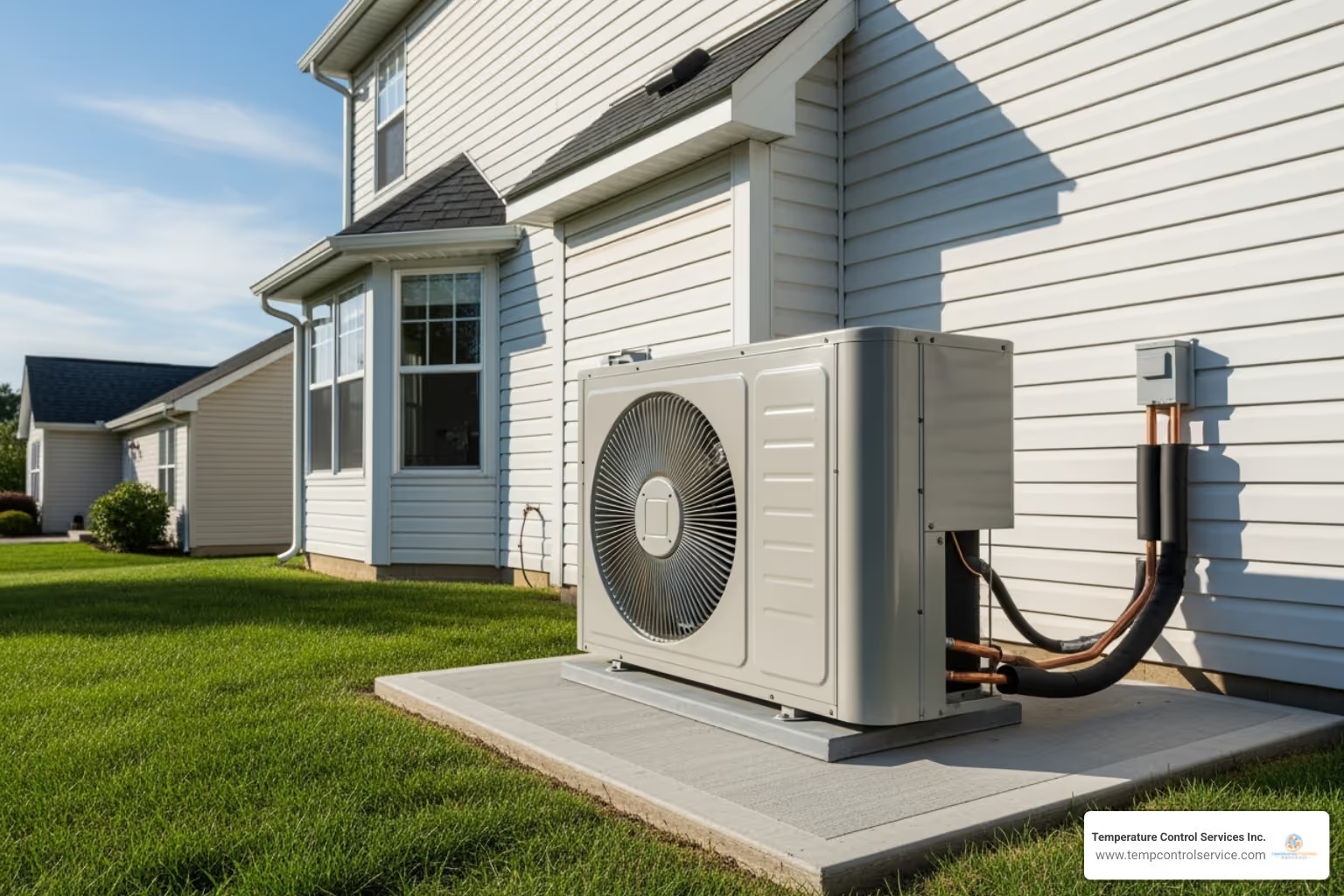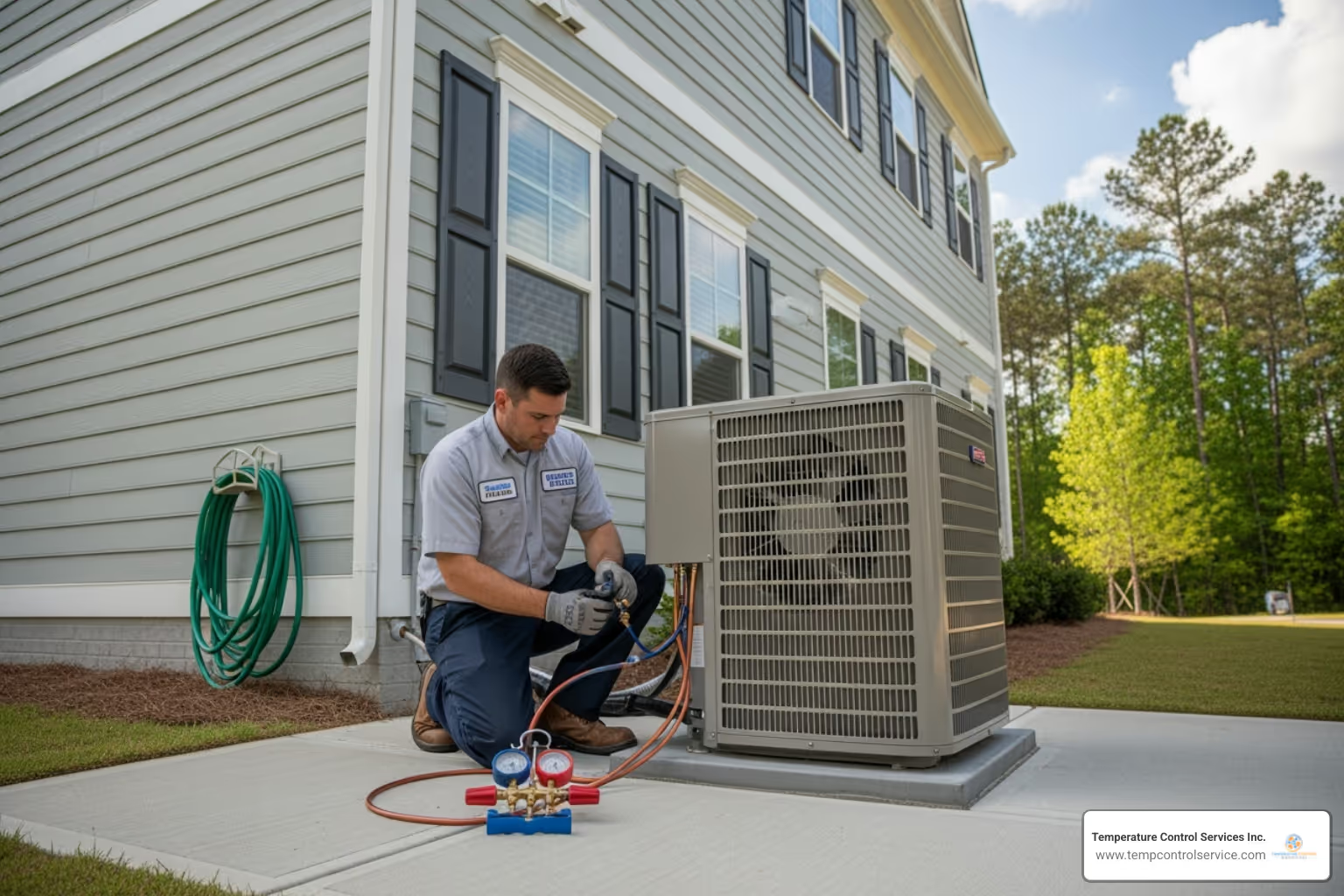
When the summer heat rolls into Butner, a working AC system becomes a necessity, not a luxury. It keeps bedrooms cool, makes kitchens bearable, and helps families relax without being drenched in sweat. But when certain parts fail, especially the fan motor, it can throw the whole system off. A weak or non-working fan motor can prevent the AC from doing its job entirely, leaving you with rising indoor temperatures and growing frustration.
One of the most common problems homeowners run into is the AC fan motor acting up or stopping altogether. This component plays a key part in moving air through your home. When it’s not doing what it's supposed to, airflow drops and cooling takes a nosedive. Knowing how to spot the signs early can help prevent more expensive damage from happening down the line.
Common Symptoms Of AC Fan Motor Issues
A breakdown in the AC system doesn’t always happen without warning. When the fan motor starts to malfunction, it often sends out several signals. Sometimes these are subtle, like a slight change in the air coming through the vents. Other times, they’re loud and obvious, like buzzing or clicking sounds coming from the outdoor unit. These clues are important and can save you time and discomfort when caught early.
Here are some clear signs the fan motor may be failing:
- Weak or reduced airflow: If the air coming from your vents feels less powerful than usual, the fan motor may not be pushing air as it should
- Fan won’t start: Sometimes the AC turns on, but the fan doesn’t spin. This usually means the motor isn’t responding to power or has seized up internally
- Unusual noises: Grinding, squealing, or knocking sounds can point to bad bearings or mechanical wear inside the motor
- Intermittent operation: If the fan starts and stops randomly, it’s often a sign of overheating or damaged components
- Warm air instead of cool: When the fan isn’t moving air properly, the cooled air inside the system never makes it to your rooms
Each one of these signs can impact your comfort levels and increase your AC system’s stress. A struggling fan motor makes the unit work harder, which often leads to short cycling, overheating, or even compressor damage. In Butner’s summer heat, that kind of problem doesn’t go unnoticed for long.
Causes Of AC Fan Motor Problems
A failing fan motor can be traced back to a few common issues. Like most mechanical parts, wear and tear is a big factor. But beyond normal aging, other causes can speed up the damage or complicate the repair process.
Here are some of the most common causes of fan motor problems:
1. Electrical problems: Loose wiring, bad capacitors, or failing relays can interrupt power to the fan motor. When voltage isn’t consistent, the motor can stall, overheat, or burn out
2. Worn bearings: Bearings inside the motor allow smooth rotation. Over time, they wear down, especially if they haven’t been lubricated in a while. This wear creates noise and eventually leads the motor to seize
3. Overheating: Dust buildup around the motor or blocked airflow can cause the fan motor to overheat, triggering its self-protective shutdown mode
4. Lack of regular maintenance: Skipping yearly AC checkups makes it easier for minor issues to go unnoticed. Small electrical irregularities or mechanical stress can grow into major motor failure over time
A homeowner in Butner might not notice these issues right away, especially if the AC seems like it’s still running. But subtle warning signs, like a gradual decrease in cooling or a strange hum from the outdoor unit, often point to a motor on the edge. These problems don’t fix themselves. Ignoring them only makes larger breakdowns more likely. Regular inspections can help catch wear and tear before it shuts the system down completely.
Diagnosing AC Fan Motor Issues
When you suspect an issue with the AC fan motor, the first step is to figure out whether the problem is mechanical or electrical. This isn't always simple, and in many cases, what seems like a minor issue could be covering up something more serious. To avoid guesswork and unnecessary damage, the system needs to be checked in a safe and orderly way.
Here are some steps our technicians follow to diagnose fan motor problems:
1. Check the power supply – If there’s a blown fuse or the breaker has tripped, power may not be reaching the unit. That’s the first thing that gets checked before going deeper
2. Inspect the fan blades – Sometimes, physical obstruction can keep the fan from spinning properly. Bent blades or lodged debris can interfere with movement
3. Test the capacitor – This small part gives the fan motor the energy boost it needs to start. A weak or failing capacitor is a common source of startup issues
4. Monitor temperatures – If the motor is hot to the touch, it may be overheating. This could be from strain, dust buildup, or electrical problems
5. Listen for noise – Sounds like buzzing, humming, or screeching often point to failing bearings or internal damage to the motor
An accurate diagnosis can't be based on sound or appearance alone. A motor might seem fine but still not be functioning right. Without proper testing equipment and safety training, it’s easy to misjudge what’s going on. That’s why fan motor inspections are best left to our professionals, who can safely figure out the issue and recommend the right fix.
Solutions For AC Fan Motor Problems
Fixing a faulty AC fan motor depends on what caused the problem in the first place. In some cases, it’s a simple repair. Other times, the motor needs to be replaced entirely. Whether it's a wiring issue or mechanical failure, quick action usually prevents bigger issues like compressor damage or full system failure that come with higher costs.
Some of the most common solutions include:
- Replacing worn bearings or the motor unit if there's too much internal damage
- Tightening or replacing electrical connections to restore steady power
- Lubricating the motor shaft if bearings are salvageable and dry
- Swapping out a bad capacitor so the motor can start and run as expected
- Cleaning dust or debris that may be overheating the unit
If the system is older and the same issue keeps recurring, it may make more sense to replace the motor instead of continuing with temporary fixes. Replacing the part with a reliable match helps prevent future breakdowns. A trained technician can make that call after seeing the overall condition of the system.
Our technicians don’t just look at the broken part. They check the system as a whole to make sure there are no hidden issues that could cause the replacement to fail again. This kind of full-picture approach helps ensure the repair lasts and performs as expected during Butner's hottest days.
Ensuring Reliable AC Performance In Butner
A well-functioning fan motor keeps cool air moving where it needs to go. When that airflow drops, rooms begin to feel warm even when the AC is technically on. That can be frustrating, especially when you're trying to sleep, work, or relax with your family. Fixing fan motor problems early, before they spread, helps keep energy use steady and prevents strain on the rest of the AC system.
In Butner, where heat is a regular part of summer, smooth and steady AC performance isn’t something you want to risk. Regular maintenance checks identify small issues like electrical wear and debris buildup that can affect your fan’s performance long before a breakdown happens. When problems are addressed fast, systems last longer and stay reliable when you need them most.
If you start noticing weak airflow or strange noises from your outdoor unit, you don’t have to wait for the system to completely shut down. These signs shouldn’t be ignored. Getting help sooner allows for quicker repairs, fewer parts to replace, and a more comfortable home through Butner’s warmest months.
When your AC shows signs of a failing fan motor, such as reduced airflow or unexpected noises during Butner's hot summer days, prompt action is key to avoid further complications and expensive repairs. At Temperature Control Services Inc, we understand the importance of addressing issues early, so you can count on us for dependable AC repair in Butner to restore comfort and performance quickly. For a quick estimate or to book a service visit, please contact us today.













.svg)